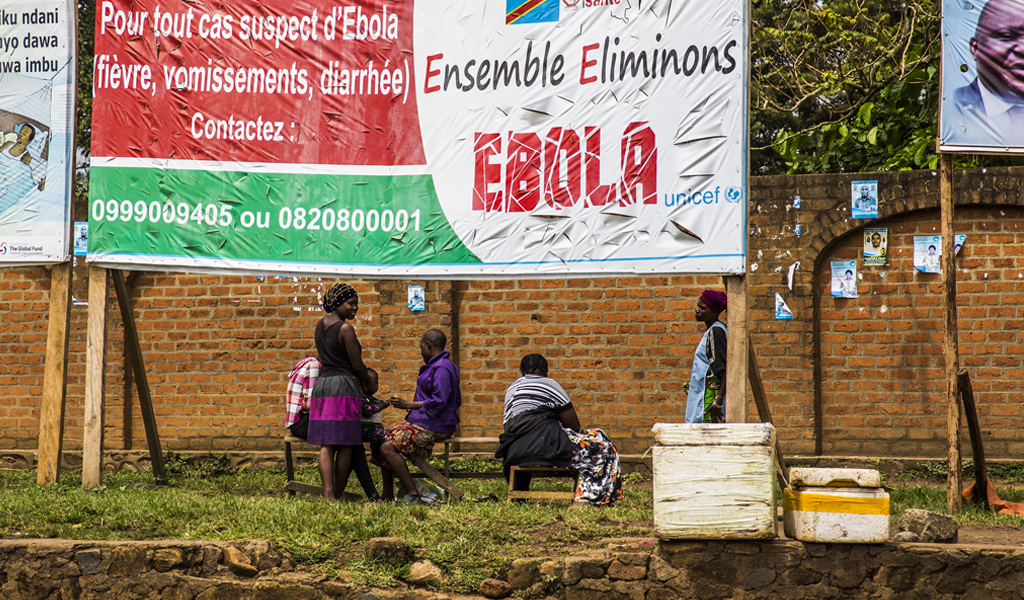As we approach the tenth anniversary of the World Health Organization’s declaration of the 2014-2016 West African Ebola epidemic as a Public Health Emergency of International Concern in August 2014, it is crucial to reflect on the significant shifts in global health perspectives and practices that have occurred since then.

The Ebola outbreak, followed by the Covid-19 pandemic, has propelled epidemics and pandemics to the forefront of international agendas, highlighting the critical importance of understanding contextual factors and embracing social science and transdisciplinary approaches in outbreak response (Grant et al., 2023).
The 2014-2016 West African Ebola outbreak represents a watershed moment in the history of the virus, marking the most extensive epidemic since its initial identification in 1976. This seventh recorded occurrence of Ebola Virus Disease surpassed all previous outbreaks combined in terms of morbidity and mortality. Originating in Guinea, the virus rapidly traversed national borders, establishing significant footholds in Sierra Leone and Liberia. This unprecedented scale and spread catalysed a paradigm shift in global health responses to emerging infectious diseases.
This notable shift included the increased recognition of social science and contextual factors in pandemic management. The response integrated anthropologists and introduced innovative platforms such as the Ebola Response Anthropology Platform (ERAP), enabling policymakers to access community knowledge. It played a pivotal role during the West African Ebola epidemic, demonstrating the invaluable contribution of social sciences in outbreak management.
ERAP’s work underscored the necessity of integrating anthropological insights into public health strategies, facilitating more effective and culturally sensitive interventions. However, despite progress, limited application of social science persists, with institutional, cultural, and political gaps hindering insights into issues like mis/disinformation, policy acceptability, social norms, stigma, geopolitics, unintended consequences, and misconceptions about social science’s preventive role (Grant, C., 2023; Leach, 2015).
In the wake of the West African Ebola outbreak, a critical research project continued to shed light on the often-overlooked local perspectives in disease preparedness, and championed the knowledge gained from this approach. This study, examined ‘preparedness from below,’ focused on understanding how communities anticipate and manage disease threats in their daily lives. By exploring the themes of risk and uncertainty, knowledge and information, and agency and authority, the project aimed to bridge the gap between global health policies and local realities. It challenged the conventional top-down approach to pandemic preparedness by asking crucial questions about who is being prepared, for what purpose, and by whom.
This research underscored the importance of integrating local knowledge and practices into global health strategies, potentially revolutionising our approach to epidemic response and preparedness. During this project the Covid-19 pandemic hit, and the global nature of the outbreak underscored the interconnectedness of people, economies, and livelihoods, emphasising the need for transdisciplinarity in addressing outbreaks (Grant 2023).
Building on this foundation, a new British Academy-funded project, ‘Pandemic Preparedness: Learning from the Successes and Failures in Transdisciplinary Working in Sierra Leone’, This aims to further explore and enhance our understanding of transdisciplinary approaches in epidemic response. This research will examine the lessons learned from Sierra Leone’s experience of Ebola and Covid-19, focusing on how diverse disciplines can collaborate more effectively to improve pandemic preparedness and response strategies.
The recent release of the UK’s Covid-19 inquiry report provides a timely backdrop to this discussion. The report critically highlights the UK’s failure to adequately incorporate socioeconomic considerations into its pandemic preparedness plans. This oversight underscores the persistent gap between recognising the importance of holistic approaches and implementing them effectively in practice. This was also highlighted by the People’s Agenda for Pandemic Preparedness, where over 50 researchers from 25 countries across six continents shared the key lessons learned from the Covid-19 pandemic and ensuring the most vulnerable are supported and increasing community involvement were some of the key lessons to emerge.
As we move forward, it is clear that the global health community must continue to prioritise transdisciplinary collaboration and context-specific approaches. The experiences of the Ebola epidemic, the ongoing challenges of Covid-19, and emerging research all point to the need for more inclusive, adaptable, and socially informed strategies in pandemic preparedness and response.
This anniversary serves not only as a reminder of past challenges but also as a call to action for continued improvement in our global health systems. By learning from past experiences and embracing diverse perspectives, we can work towards more resilient and effective responses to future health crises. In the words of the WHO Director-General when announcing the end of Covid-19 as a Public health emergency of international concern (PHEIC): ‘the worst thing any country could do now is to use this news as a reason to let down its guard, to dismantle the systems it has built’, now is the time to prepare, learn and build on knowledge gained from these epidemics and pandemics.
Further reading
The Centrality of (mis)trust in Pandemic Preparedness in Sub-Saharan Africa: A Conceptual Framework.
Catherine Grant
Journal of the British Academy
People’s Agenda for Pandemic Preparedness.
Catherine Grant et al
The Ebola Crisis and Post-2015 Development.
Melissa Leach
Journal of International Development